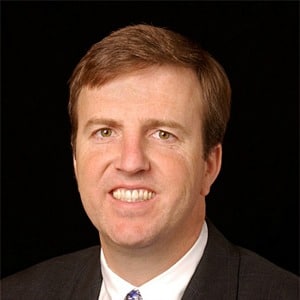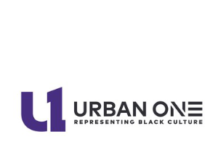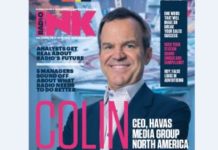
In every issue of Radio Ink in 2016, we’ll take a look back at the 1996 legislation that rocked the radio industry. The 1996 Telecommunications Act spawned deregulation, and to this day there is a debate about whether radio is better off as a result — or if it was damaged, perhaps irreparably. We will never really solve that riddle.
Once deregulation was launched and companies were free to grow as large as their money would allow, Clear Channel Communications led the charge. The goal was to build a national radio platform like no other — and Clear Channel was also into TV and outdoor at the time.
Clear Channel grew big, and it grew quickly. The company that was started by Lowry Mays with one station in San Antonio gobbled up whatever stations fit into its national strategy. The plan culminated with the purchase of AM/FM in 1999. The deal at that time was valued at $17.4 billion and left Clear Channel owning more than 800 stations all across the country.
Mark Mays — who spent two decades as CEO of Clear Channel, and many years in the number one position on Radio Ink’s 40 Most Powerful People in Radio list — was part of the group that pushed lawmakers for deregulation. Here’s a look back at the Telecommunications Act of 1996 with Mark Mays. R 32
RI: What was the thinking about what needed to happen for radio back then?
Mays: Back in those days, ownership limits were an artificial ceiling — and it didn’t make any sense, from the perspective of different industries around the globe that didn’t have these artificial caps. As you got into industries and you had all of the drop-ins and the proliferation of radio stations, there wasn’t a natural evolution of consolidation. They were just limited.
As we looked out into the future of what we were competing against — more and more TV stations coming to market, newspapers that had a monopoly, cable systems that had all aggregated, and each cable system allowed to have hundreds of channels — as we looked at it, it just didn’t make any sense that radio was
limited, and it would impede radio’s ability to compete in the future. That was our biggest concern.
The fight was always that you needed “diversity of voice,” which is the exact opposite, really — the more radio stations that any particular owner owned, the more diverse the programming was going to be. All you had to do was look at what happened when XM Radio came around. They were allowed to own one giant band of channels, and they had much more diverse programming than the traditional radio stations. Our big argument was that it didn’t make any sense. You could have better, diverse programming, and we could compete better in the existing adverting market, if we could consolidate.
RI: Tell us how it happened. The big players got together with the NAB and came up with a plan and went right to Congress?
Mays: Yes. There was a lot of lobbying and explaining to the people that were running the Commerce Committee and people who were like, “Hey, explain the radio business to me.” It was a massive lobbying effort by companies like Clear Channel. Certainly, we were in there a lot, trying to educate members of Congress and senators about telecom and what part radio played in it. If you remember, radio was a smaller portion of the overall Telecom Act. It was an add-on; it wasn’t the main driver. We were just trying to make sure we were included as they thought through the process.
RI: The way former FCC Chairman Reed Hundt tells it, there was a meeting in New Orleans, and Lowry was there, maybe you were there, and everybody said to Hundt, “This is the way it’s going to be. We’ve already cut a deal with Newt Gingrich.” Does that sound right?
Mays: We certainly lobbied everybody. There were a lot of conversations, more than just with Newt. There were a lot of conversations across different key constituents where we had the stars aligned, if you will. I definitely remember that meeting and was there. I remember a lot of meetings with Reed and the FCC and all of the commissioners about how we thought the process should pan out. I don’t think there were any veiled threats of, “Hey, we’ve already got this done. So jump on board.”
RI: So the act gets passed, and….
Mays: Interesting tidbit: When we originally got it passed through Congress and through the Senate, there were no limits. You could own as many radio stations as you wanted in any market, anywhere. In conference was when it came about that you can’t own more than six or seven in a market. That’s when some restrictions were put on it. So the original legislation had no limits on it whatsoever, which was kind of interesting.
RI: So when they started conferencing, what was radio’s view? That there should be limits? Or they were happy with no limits?
Mays: We were happy with no limits. With the regulators, it was some of the Democrats who added the limits.
RI: Do you think it was right to put limits on it, looking back now?
Mays: No, I do not. I think it was a mistake that I think cost the industry. I’m not sure everybody agrees with that.
RI: The act gets passed, and then you guys go to work. What was it like after that? You clearly had a mission to expand.
Mays: We just got aggressive in focusing on where the opportunities are, how do we expand in the markets that we’re in, how do you try to get as many different options as you can. We bought Jacor pretty quickly after that, which was a big, complementary group of stations. Then, obviously, we bought AM/FM. We were continually trying to look at stations and trying to build out a national platform so that we controlled our own destiny. That was kind of the theory. An un duplicatable group of assets, and how could we go do that.
RI: One of the things that I think people overlook these days is that radio stations across the country, especially in small and medium markets, were not doing very well. They were struggling to survive, correct? So the act was helpful in that aspect.
Mays: Exactly. For the most part, we had all of the radio guys on board. It was the television guys that weren’t as excited about loosening the rules for TV. In hindsight, they made a massive mistake.
RI: What was the best part of the act for radio?
Mays: The best part was the loosening of the rules locally and nationally. Instead of just being able to own two FMs and two AMs, it allowed you to own up to seven stations in a market.
RI: Was there anything you think did not work out?
Mays: I’m not sure I’ve ever thought about that. I wouldn’t say it didn’t turn out well. The only thing I would’ve said was that they didn’t deregulate enough.
RI: So you think, even today, there needs to be more deregulation?
Mays: For sure. There shouldn’t be any limits placed on it by the FCC. It should all be imposed by anti-trust concerns, as opposed to FCC concerns. It doesn’t make any sense. The theory of not having diversity of thought — with the diversity of programming and whatnot, I am not a believer. People will provide any programming that’s economically attractive.
RI: Looking back, do you think deregulation was beneficial for the radio industry?
Mays: I think if it hadn’t come about, the radio industry would be a total disaster. Because then you wouldn’t have anybody that would be able to compete in any form or fashion with the new technologies. So, yes. I would think it’s been as favorable as it can be, given the limits that were imposed.
RI: What do you think about all the new technology radio faces today?
Mays: The ability for a consumer to get on-demand audio and entertainment continues to explode. There continues to be that proliferation of different alternative audio and entertainment sources. Luckily, radio continues to have that very attractive spot in the car. But otherwise, it will be very, very competitive.
RI: Why do you think we haven’t been able to get revenue to grow?
Mays: I think maybe sometimes we don’t give ourselves credit when we say, “Oh, we haven’t been able to get it to grow,” when we look at the programming that we’re providing across the digital streams and everything like that. We sometimes just look at the terrestrial streams. Well, the terrestrial streams give us the ability to provide great programming. Our audience in the digital streams are a subset of that, and I think a lot of times we don’t include those when we talk about our overall growth rate.
I’m still a believer that radio has a place in the consumer’s choice of audio. We have to continue to provide it the way they want it, though. There are going to be those people that want it digitized in different forms and formats. I think as we continue to evolve those different means of distributing radio, we continue to get better and better at it. It’s hard to grow revenue streams unless you grow audience streams. If you look at the audience we’re delivering over the last five years, the terrestrial streams, those aren’t growing. Therefore we have to deliver our services by terrestrial means, but through other streams as well.
RI: Looking from the outside in, do you think we’ve done a good job keeping the programming strong?
Mays: I think we’ve done a great job of keeping programming strong. Now, when I say that, I think someone like me, who’s 52, is not the right person to program to 20-to-28-year-old young adults. I think bringing kids or younger people in who have an ability to connect in today’s social media environment is a really important aspect of how the industry grows going forward.
RI: What do you miss the most about radio?
Mays: Probably the people. I think it’s a great industry with great, joyful people who are wonderful to be around, and you just love all the aspects of that.








